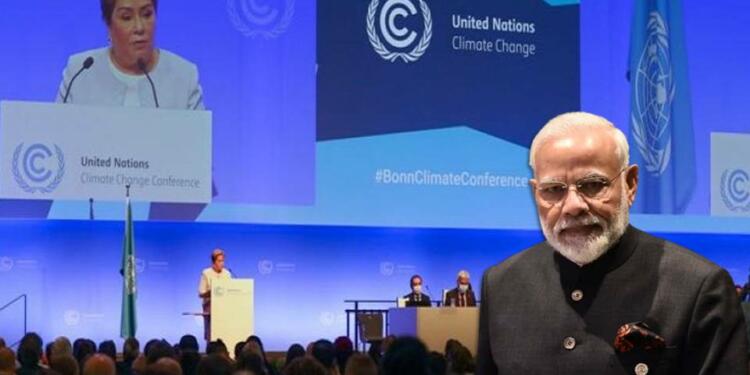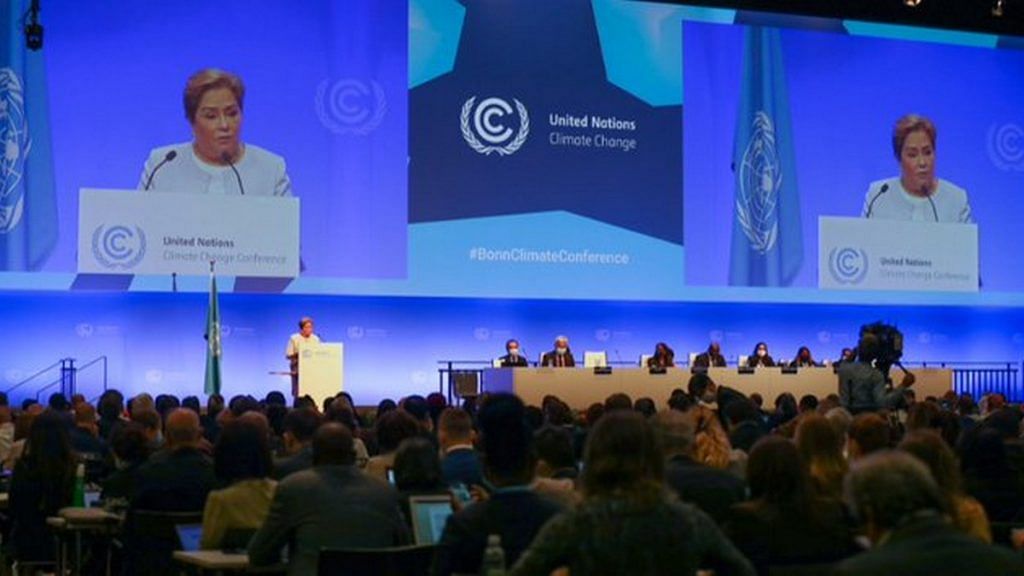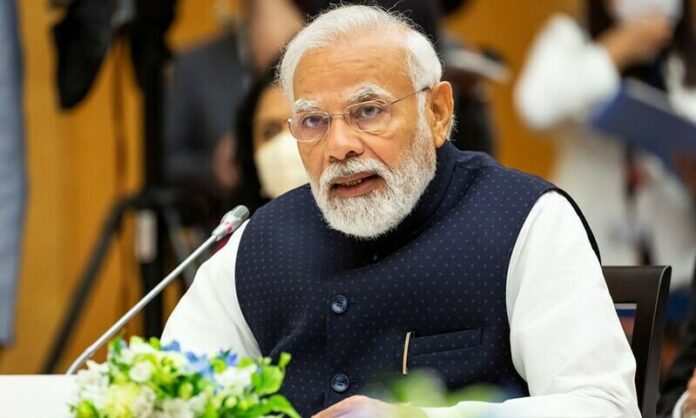During a technical dialogue on the Global Stocktake at the ongoing climate conference in Bonn, India took a firm stance by stating that it will not accept prescriptive messages from the Global Stocktake regarding national determined contributions. India, along with other developing countries, emphasized the need for the Global Stocktake to be guided by the principles of equity and historical responsibility.
 The Global Stocktake serves as a review process for assessing the implementation of the Paris Agreement’s objectives, which aim to limit global warming to well below 2°C above pre-industrial levels and pursue efforts to keep it under 1.5°C. India made its intervention to emphasize its position and ensure that the Global Stocktake remains aligned with its own climate targets.
The Global Stocktake serves as a review process for assessing the implementation of the Paris Agreement’s objectives, which aim to limit global warming to well below 2°C above pre-industrial levels and pursue efforts to keep it under 1.5°C. India made its intervention to emphasize its position and ensure that the Global Stocktake remains aligned with its own climate targets.
At present, the world is far from achieving the goals outlined in the Paris Agreement, as current emission levels indicate a trajectory towards 2.7°C of warming. The World Meteorological Organisation has warned of a 66% chance of temporarily exceeding the 1.5°C threshold in the next five years. Against this backdrop, the COP28 Global Stocktake assumes critical importance in bridging the emissions gap and gaining political consensus to realign efforts with the Paris Agreement.
India reiterated its stance by stating, “We would not support any prescriptive messages from the GST on what the content of our NDCs should be. Parties under the Paris Agreement retain the sovereign right to determine their climate targets in pursuit of their goals, and reflect them in their NDCs. In this context, we do not support that NDCs necessarily should be economy-wide, comprising all sectors or gases. Those that would like to frame their NDCs in this manner, voluntarily have our full support.”
India’s Firm Stance on Global Stocktake: Upholding Sovereignty, Equity, and Historical Responsibility
India’s intervention was reported by the Third World Network (TWN), an international research and advocacy organization focusing on North-South affairs. The Ministry of Environment confirmed India’s position and highlighted additional concerns related to equity and historical emissions. India echoed the concerns raised by other countries regarding the lack of operationalizing equity in previous dialogues, the pre-2020 gaps, disproportionate carbon budget utilization by a minority of countries, and the resulting constraints and costs imposed on low-carbon development in developing nations.
India emphasized the need for a close scrutiny of the models and scenarios presented in the scientific literature, as they currently do not adequately address the needs, rights, and aspirations of developing countries. The existing models propose pathways that constrain energy consumption and income growth in developing nations, projecting a future that does not align with their desired trajectory.
The G77 and China, led by Cuba, also stressed the importance of the Global Stocktake enabling Parties to assess their contribution to the climate crisis. This includes examining implementation gaps during the pre-2020 timeframe, acknowledging the historical contribution of developed nations to emissions since the pre-industrial era, and addressing other relevant factors.
India Asserts Sovereignty and Emphasizes Equity in Global Stocktake Discussions
While the United States disagreed with integrating historical responsibility into the Global Stocktake, stating that equity has multiple dimensions and no single definition, developing countries argued that acknowledging historical responsibility is essential. Failure to acknowledge it would result in redistributing the mitigation burden among developing nations that did not contribute significantly to the problem. They emphasized that substantial financial resources are required for developing countries to bear an equal share of the mitigation burden. This issue is expected to gain prominence in the coming days of the conference.
On Wednesday, COP28 President Sultan Al-Jaber met with European Commission President Ursula von der Leyen and Executive Vice-President Frans Timmermans to discuss preparations for COP28, which will be held in Dubai later this year. In a joint statement, they emphasized the need for all Parties to align their national efforts with the commitment to achieve the long-term goals of the Paris Agreement, including pursuing efforts to limit the
global temperature increase to 1.5 degrees Celsius. They also emphasized the importance of completing the first Global Stocktake and ensuring that climate actions align with emissions reductions, resilience enhancement, finance flows, and climate neutrality objectives. Additionally, they highlighted the need for a just energy transition, scaling up renewable energy, and addressing loss and damage in vulnerable countries.
The discussions at the Bonn talks underscore India’s commitment to asserting its independence and ensuring that the Global Stocktake respects national sovereignty while incorporating principles of equity and historical responsibility. By voicing its concerns and aligning its goals with the Paris Agreement, India aims to contribute to a more inclusive and effective approach to addressing the global climate crisis.


